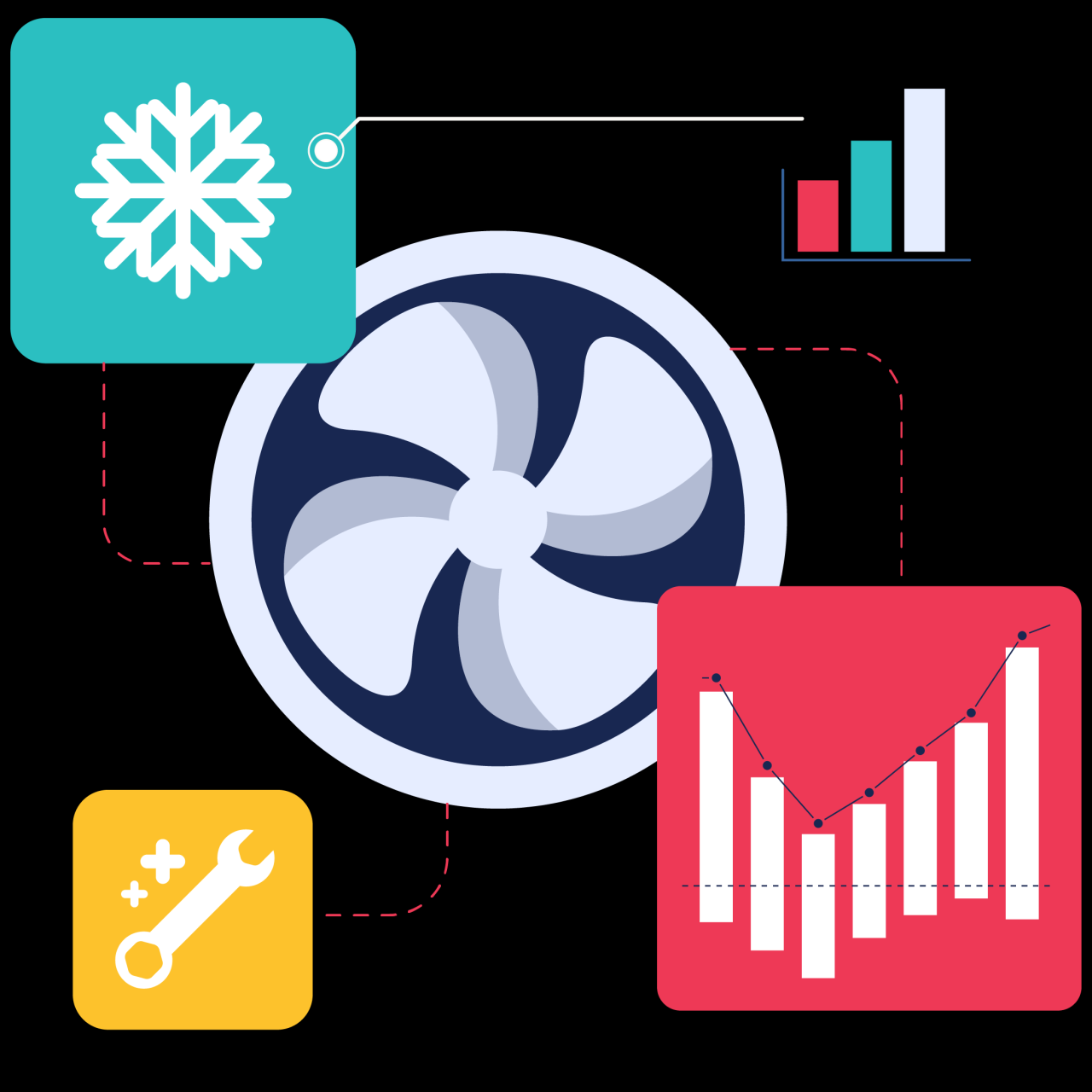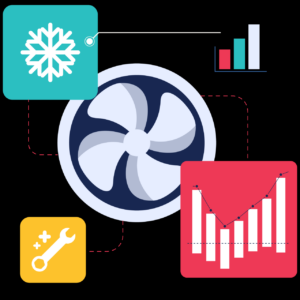In the dynamic realm of HVAC maintenance and repair, the advent of field service software has emerged as a transformative force, promising to revolutionize the way businesses operate and technicians perform their duties. By seamlessly integrating with existing HVAC systems and equipment, these innovative solutions empower businesses with real-time data, streamlined workflows, and enhanced customer satisfaction.
As we delve into the intricacies of HVAC field service software, we will uncover its multifaceted benefits, explore its key features, and examine the profound impact it can have on the industry. Prepare to embark on an enlightening journey that will equip you with the knowledge and insights necessary to harness the full potential of this groundbreaking technology.
Contents
Benefits of HVAC Field Service Software
HVAC field service software offers numerous advantages for businesses and technicians, streamlining operations and enhancing efficiency. This software provides a comprehensive platform for managing scheduling, dispatching, tracking, and invoicing, simplifying daily tasks and improving overall productivity.
Streamlined Scheduling and Dispatching
- Centralized scheduling system eliminates manual processes and reduces errors.
- Real-time visibility into technician availability ensures optimal assignment.
- Automated dispatching streamlines the process and improves response times.
Enhanced Communication and Collaboration
- Instant messaging and email integration facilitate seamless communication.
- File sharing and annotation capabilities allow for efficient collaboration.
- Customer portals provide access to appointment details and real-time updates.
Improved Tracking and Reporting
- GPS tracking monitors technician locations and optimizes routing.
- Job progress tracking provides visibility into completion status.
- Detailed reporting enables data analysis and performance optimization.
Increased Revenue and Customer Satisfaction
- Improved efficiency leads to increased revenue generation.
- Faster response times and improved communication enhance customer satisfaction.
- Automated invoicing and payment processing streamline billing processes.
Key Features of HVAC Field Service Software
HVAC field service software offers a range of features that streamline operations and enhance efficiency. Consider these essential features when selecting a software solution:
Scheduling and Dispatch
* Real-time scheduling and dispatching of technicians based on availability, location, and skillset.
- Automatic dispatch notifications and reminders to technicians and customers.
- Integration with GPS tracking for optimized route planning and reduced travel time.
Work Order Management
* Centralized tracking of work orders, including details such as customer information, service history, and required parts.
- Real-time updates on work order status and progress.
- Integration with inventory management systems for automatic parts ordering and tracking.
Mobile Access
* Technician mobile apps for access to work orders, customer information, and technical documentation in the field.
- Offline capabilities for seamless operations even in areas with limited connectivity.
- Electronic signatures and real-time updates for improved customer communication.
Customer Management
* Centralized customer database for easy access to customer history, preferences, and service agreements.
- Online customer portals for appointment scheduling, invoice viewing, and payment processing.
- Automated communication tools for proactive updates and feedback collection.
Reporting and Analytics
* Comprehensive reporting on key performance indicators, such as technician utilization, job completion rates, and customer satisfaction.
- Data analysis tools for identifying trends, optimizing operations, and improving decision-making.
- Real-time dashboards for monitoring key metrics and identifying areas for improvement.
These features work together to provide HVAC field service businesses with a comprehensive solution that enhances efficiency, improves customer satisfaction, and increases profitability.
Integration with HVAC Systems and Equipment

Integrating HVAC field service software with existing HVAC systems and equipment is crucial for optimizing maintenance operations and enhancing overall efficiency. This integration enables seamless data exchange between the software and HVAC systems, providing technicians with real-time access to critical information.Integrating
field service software with HVAC systems allows for the automatic collection of data from sensors and equipment, eliminating the need for manual data entry and reducing the risk of errors. The software can monitor equipment performance, track maintenance history, and generate alerts for potential issues.
This real-time data provides technicians with a comprehensive view of the HVAC system, enabling them to make informed decisions and prioritize maintenance tasks accordingly.
Case Study: Enhanced Maintenance Efficiency with Integrated Software
A leading healthcare facility implemented HVAC field service software integrated with its existing HVAC systems. The integration allowed the facility to track equipment performance remotely, monitor energy consumption, and receive alerts for potential issues. As a result, the facility experienced a significant reduction in equipment downtime, improved energy efficiency, and enhanced overall maintenance efficiency.
Mobile Accessibility and Remote Management
With HVAC field service software, technicians gain the power of mobile accessibility and remote management. This empowers them to access and update information from the field, streamlining workflows and enhancing responsiveness.
Benefits of Mobile Accessibility and Remote Management
- Real-time access to customer data, work orders, and equipment history.
- Remote diagnostics and troubleshooting, reducing the need for on-site visits.
- Improved communication between technicians and dispatchers, ensuring timely updates and efficient task coordination.
Example: Enhanced Response Times
By accessing customer information and work orders remotely, technicians can plan their routes efficiently, reducing travel time and improving response times. This ensures prompt attention to customer needs, leading to increased satisfaction and reduced downtime.
Reporting and Analytics for HVAC Field Service
Reporting and analytics play a vital role in HVAC field service software, enabling businesses to track performance, identify trends, and make informed decisions. By leveraging data collected from technicians and systems, businesses can gain insights into various aspects of their operations.
Key Performance Indicators (KPIs)
HVAC field service software can generate reports on key performance indicators (KPIs) such as:
- First-time fix rate
- Average time to resolve
- Customer satisfaction ratings
These KPIs provide valuable insights into the efficiency and effectiveness of field service operations.
Work Order Analysis
The software can analyze work orders to identify patterns, bottlenecks, and areas for improvement. By tracking work order history, businesses can determine the most common issues encountered, the time required to complete different types of repairs, and the resources needed for specific tasks.
Customer Relationship Management (CRM)
HVAC field service software can integrate with CRM systems to track customer interactions, preferences, and service history. This information can help businesses personalize customer service, identify upsell opportunities, and build stronger relationships with clients.
Data-Driven Decision-Making
Data analysis from HVAC field service software can inform decision-making at various levels. For instance, businesses can use data to:
- Optimize scheduling and dispatching
- Identify training needs for technicians
- Forecast demand and allocate resources accordingly
By leveraging data, businesses can make data-driven decisions that enhance efficiency, reduce costs, and improve customer satisfaction.
Closure
In conclusion, HVAC field service software has proven to be an indispensable tool for businesses seeking to elevate their operations, optimize technician productivity, and deliver exceptional customer experiences. By embracing the power of this transformative technology, companies can gain a competitive edge, drive growth, and establish themselves as leaders in the HVAC industry.
As the future unfolds, we can expect even more advancements and innovations in this rapidly evolving field, further empowering businesses and technicians alike to achieve unprecedented levels of efficiency, accuracy, and customer satisfaction.

